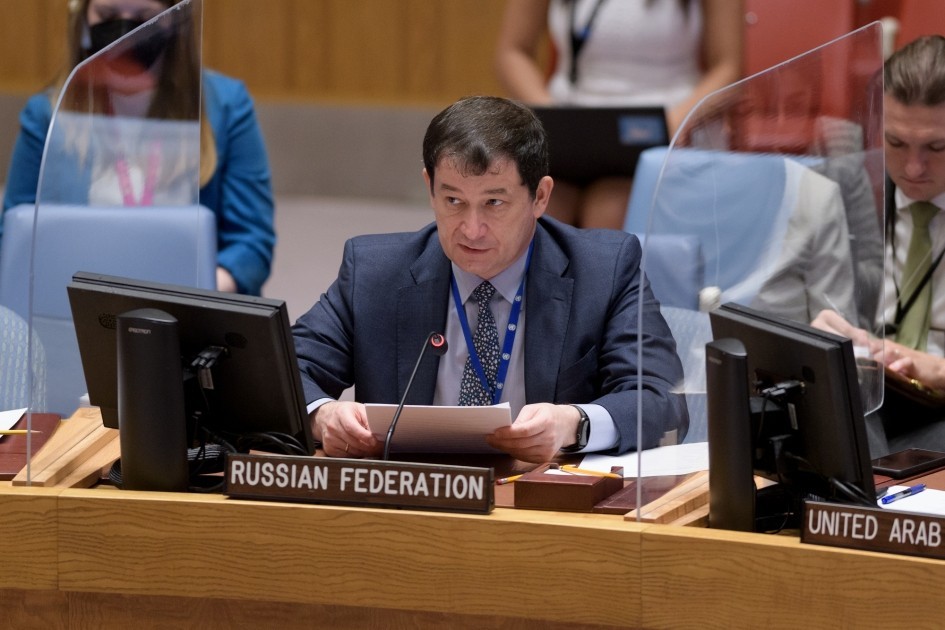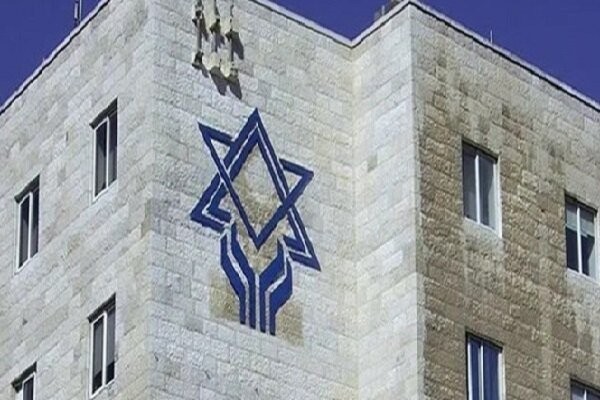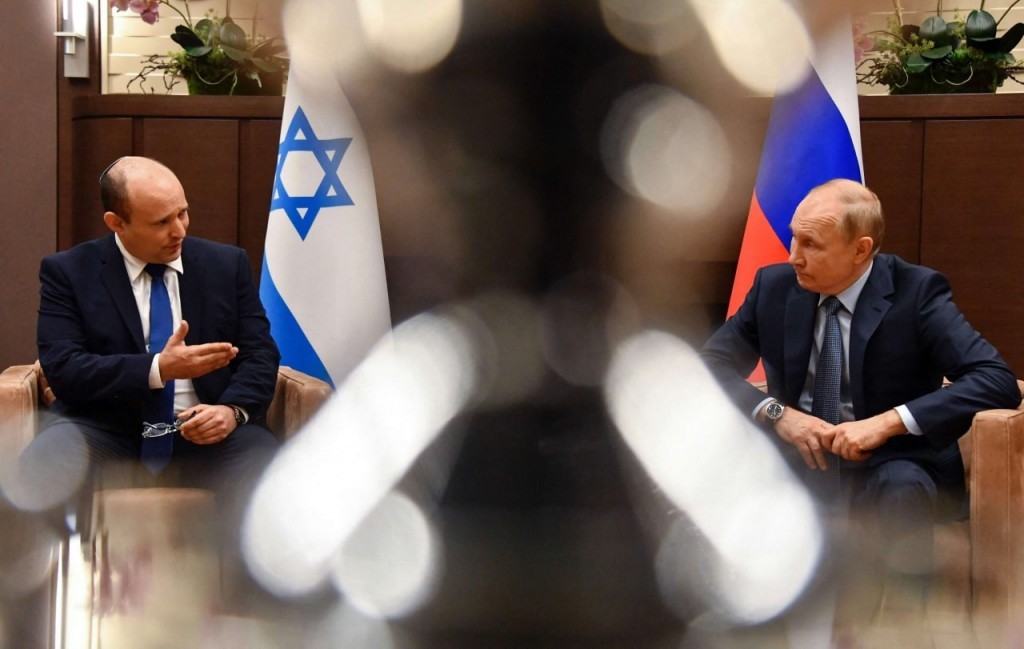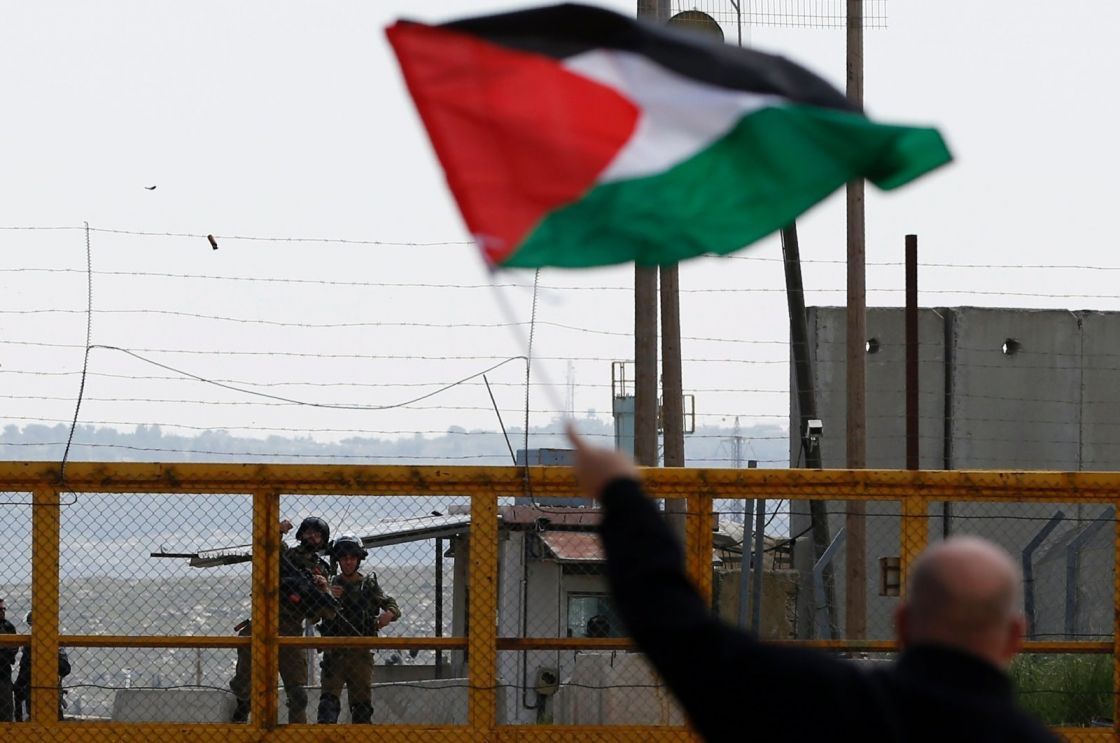- Articles
- Posted
How Will the New International Situation Affect the Palestinian Cause, and Our Region as a Whole?
In his speech at the Security Council last Tuesday, July 26, the Russian delegate to the UN said in a session on the situation in the Middle East, including the Palestinian issue: “We consistently advocate for a reset of direct Palestinian-Israeli talks which should result in creation of independent Palestinian state with a capital in Eastern Jerusalem... We are convinced that multilateral efforts need a boost, including the efforts of the Quartet of international intermediaries for the Middle East... we note the importance of proper coordination between international mediators and regional partners. Being guided by these considerations, Russia put forward an initiative to convene an extended ministerial meeting of the Quartet with participation of key members of the League of Arab States. Unfortunately, this issue remains unresolved due to the lack of interest of the United States in resumption of the activity of the Quartet”.
At the end of his speech, he added: “we would like to emphasize once again that Russia will carry on with its efforts to coordinate joint actions aimed at reviving the Middle Eastern settlement process and finding a just solution to the Palestinian problem. As we know from practice, attempts to monopolize this process and impose and economic truce on the Palestinians instead of meeting their aspirations to have an independent state never led to any concrete results, and never can”.
Russian Foreign Minister Sergei Lavrov had said the same thing two days before the aforementioned session in his speech at the Arab League in Cairo on July 24, where he said: “I would like to reiterate our determination to promote partnership with the Arab League, our interest in promoting economic cooperation... This cooperation extends also to international and regional issues. We cooperate on Palestine. This issue is in a very bad shape because of the unwillingness of the United States to revive the activities of the Quartet with participation of the Arab League representatives”.
Does this statement include anything new?
If we look at the content of the statements independently of what is going on in the world today, we may not find anything new in it. The American positions indicated by the Russians are not new, and do not constitute a departure from the historical role of the US (and by extension the West) in obstructing a solution to the Palestinian issue, which would not have existed had it not been for their tireless efforts to support the establishment and continuation of the Zionist entity.
Likewise, the Russian position on the Palestinian issue and the Zionist entity is not new. Historically, a lot of work had been put into distorting the facts to promote the idea that the first country to recognize the Zionist entity was the Soviet Union. We have dealt with this idea in a previous article in Kassioun entitled “How is the History of the Soviet Union Being Distorted Regarding Palestine? And Why?” (Arabic), which shed light on the real position of the Soviet Union during the UN General Assembly meetings in 1947 on the Palestinian issue, in which the position of the Soviet Union was that Palestine remaining a single state was the first option.
The statement above does not contain a new position by the Russian side, and the same words have already been mentioned in previous official statements. For example, in an interview with Russian Foreign Minister, Sergey Lavrov, on August 21, 2020, and in response to a question about “the role that Russia will be ready to play in the Israeli-Palestinian conflict (in addition to the Middle East Quartet) to revive talks, in view of the critical situation resulting from the US statements on Jerusalem”, Lavrov said that the Quartet was “designed to accompany the Middle East Peace Process. However, it is currently paralyzed by the uncooperative position by the United States. Washington said it would continue working within the Quartet only to promote its peace plan, known as the ‘Deal of the Century’. In this context, we said that we were ready to continue working on the Israeli-Palestinian issue in a troika with the UN and the EU, with the option of other regional powers and organizations to join our efforts”.

The time context of the statement
Returning to current events and the international atmosphere in which this statement came, including Russia’s relationship with the Zionist entity today and implicitly the position on Zionism, which something we touched on in several Kassioun articles, the last of which was about the developments relating to the issue of the “Jewish Agency” and the decision to suspend its work in Russia. This statement also comes after Biden’s failed visit (Arabic) to the region, as not only did it not result in obtaining any gains from the Arab countries whose leaders Biden met in Jeddah in mid-July, but it was clear that the tutelage relationship the US has enjoyed for decades in the region, at times to the point of total subservience, has become a thing of the past.
There are many other examples in this context within an international situation in which the changes in the international balance of power are becoming more and more apparent, as the unipolarity that the US (and the West is on its side) enjoyed alone for more than three decades, while plundering and destroying the world with military and economic tools, is fading rapidly.
This is in addition to what has become clearer with regards to the transition to the post-dollar dominance era as an international currency, which has gone beyond indicators and declarations to practical steps represented by the increasing use of local currencies in exchanges between countries, and the rise of the BRICS alliance. All this means the end of unipolarity in the global financial and economic system, which was one of the most important tools that the West used to control politics in the “periphery” countries as well as in our region. This gave the West the ability to prolong local crises to drain countries and peoples, including the Palestinian issue as well as the Syrian crisis and other crises in the region.

What does this mean for the Middle East today?
Within this scene, all the above indicates several things, the most important of which:
- Indications are increasing that the US has fewer cards in the region, including the failure of the “Arab” NATO project and with it what has been accomplished within the framework of the normalization process with the Zionist entity through the so-called “Abraham Accords”, coinciding with a trend towards Saudi-Iranian rapprochement. This means that the future of “Israel” bears indications of more isolation and weakness in the region.
- Another indication of the US’s recognition of its decline in the region is the recent and desperate attempts to increase interest therein after the general trend was going towards withdrawal and repositioning internationally and looking east to focus on its “battle” with China, as it was clear that Biden did not anticipate the need for such a visit like the one he paid to Saudi Arabia when he said during his election campaign that it is a pariah state and that Mohammed bin Salman is a killer and violates human rights.
- All this means that the US’s ability to control regional powers, especially Arab countries, is in sharp decline, which decreases towards complete vanishing its ability to impede resolving any issue. That means needing the US to resolve any issue, or rather the US’s ability to obstruct resolving any issue in our region is moving with time towards zero.
- It is no longer possible to impose any solution or work on any solution to any of the crises in the region without agreement with the region’s main countries. Meaning that no side can be part of the solution or can obstruct a solution, as the US and the West have done for decades, without agreement with the main Arab countries, which are in a stronger position with regard to the relationship with the West, especially the US.
- At the same time, Russia’s relationship with the region’s countries is improving. That relationship is characterized by the fact that it relies more on equality and cooperation rather than the relationship of dependency and tutelage imposed by the US. It has become clear that the region’s countries consider Russia a preferred alternative to America, something that even Americans themselves recognize, whether through their actions or through their media. For example, according to an article published by American magazine “Foreign Policy” on July 20, “since the war in Ukraine began... the Middle East does not look all that different from the way it did before Russia’s tanks began to roll on Feb. 24. This underscores not so much U.S. weakness but rather the fact that Moscow shares a discrete set of common objectives with almost all of Washington’s partners in the region, from high energy prices to a more multipolar world order. This is quite different from the Cold War redux that some analysts infer. It is instead a messier, more challenging environment for U.S. policymakers who remain ambivalent about the Middle East. From where the Saudis, Egyptians, Emiratis, Turks, Israelis, and others sit, Russia is a legitimate player in ways that a whirlwind U.S. presidential visit is not likely to change any time soon”.
- Russia’s (and before it the Soviet Union) position on the Palestinian issue has not changed since the beginning. However, the international situation today allows moving this file very seriously and from a stronger position characterized by an American retreat that makes Washington less able to impede progress towards a solution and a greater opportunity for agreement with regional countries, especially the main Arab countries, and amid increasing isolation and weakness of the Zionist entity. This could pave the way not only for resolving the Palestinian issue, but also for resolving all outstanding crises in the region, especially the Syrian crisis, and not only despite the Americans and their retreating tools in the region, but necessarily without them. In other words, what is required today to resolve these crises is exactly what Lavrov said less than two years ago – referenced hereinabove – about working within a framework that does not include the US and by including the countries of the region.

Essence of the issue
The Zionist-Western activity in Palestine for over a hundred years has been a source of continuous sabotage and attrition throughout the Middle East, which has led to reshaping it into a region of permanent wars and chaos. None of this was a coincidence, but an intentional act.
- The first objective of the existence of this entity that is alien to the region with its aggression and racism, was to sever the link between Africa and Asia, and to keep them separate from one another, which means giving priority to the importance of sea routes over land routes, and which implies the sovereignty of the West’s kingdoms of the high seas.
- The second objective is to keep all the region’s countries in a state of constant attrition through successive wars, to keep them within the framework of subservience and prevent their revival.
- The third objective is to “normalize” confrontation as an open and endless situation, so that the attrition will not only continue, but also be turned into a tool in reshaping the region’s regimes. The label, which was true to begin with and that is “no sounds rises above the sound of battle”, has become a slogan devoid of its original content, which has been replaced with new content, which is that invoking the battle has become a tool to reduce the ceiling of political freedoms to the minimum limits and to amplify corruption and plundering to the maximum. This means entering into a long-term self-destruction mechanism, the results of which we see now in most of the region’s countries.
Achieving real stability in the entire region so that it ceases to be used as a hot spot for striking any Asian and African projects aiming to become independent from the West is a fundamental and inescapable goal within the framework of building a new world order based on equality and equal exchange relations.
In other words, the just and real solution to the Palestinian issue is not only a legitimate moral, humanitarian, and value-based issue as it has always been, but also a practical issue within today’s concrete circumstances to build a new world order and end Western hegemony. Therefore, it will not be surprising at all that both Russia and China will gradually and rapidly increase their weight towards pressuring for a just solution, which cannot reach its ends without a fundamental role for the region’s peoples, especially the Palestinian people, in intensifying and developing resistance.
The historical horizon is widening, for the first time in decades, to a real, comprehensive, and just solution to the Palestinian issue, and this path should be pursued to the end.



 Reem Issa
Reem Issa